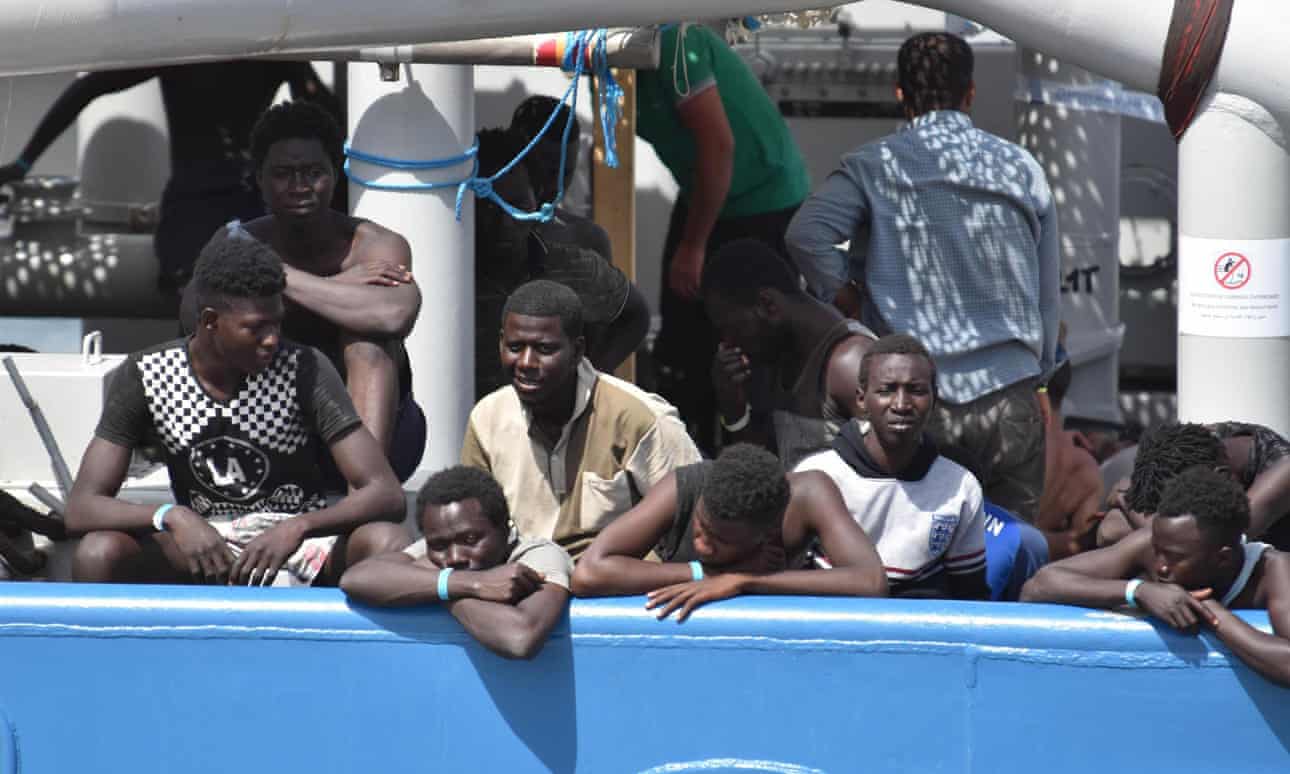Charities that rescue migrants and refugees from the Mediterranean have reacted angrily to plans to make them subject to a new code of conduct drawn up by Italy and endorsed by other EU countries.
The move is likely to bring them under the control of the Libyan and Italian coast guards, which might constrain their ability to save passengers from overcrowded and unseaworthy smuggling boats.
***************************************************************************
The Italian government, which is under intense political pressure over the surge in refugee numbers, convened an emergency meeting with France and Germany in Paris on Sunday.
The three countries are considering extra funding, as well as efforts to reduce what they describe as the “pull factor” created by the presence of NGOs (non-government organisations) in the Mediterranean.
But a proposal by Italy to unilaterally close its ports to ships containing migrants is expected to be shelved because it is in clear breach of international maritime law.
Some Italian politicians and the Libyan coast guard have complained for months that the NGOs’ presence just outside Libyan waters encourages migrants to risk the perilous journey to Italy.
One leading NGO organiser reacted incredulously to criticism of his organisation’s rescue work. Oscar Camps, the founder of the Catalan group Proactiva Open Arms, tweeted: “You are a ‘pull factor’; you deal with traffickers, you finance the mafias, the taxi drivers of the seas, and you will close the ports to us. [And] we are the problem?”
Activists point to the loss of 2,000 migrants lives this year as proof that their work is necessary. In March, several NGOs drew up a voluntary code of conduct, stressing the importance of humanitarian goals, independence from government and the need for coordination.
The Italian civil society forum AOI expressed its deep concern over the plan, saying that any proposal to limit the NGOs’ freedom will damage their ability to save lives and reduce their funding. It added that numerous inquiries had said allegations that they were colluding with the smugglers were unfounded.
But a spokesman for the Libyan coast guard claimed the NGOs were acting inside Libyan coastal waters in breach of international law. More than 84,000 migrants have landed in Italy this year, and 12,000 in the past few days. The past three years have shown June to September to be when migrants numbers peak.
Libyan coast guard spokesman Ayyoub Qasem accused the NGOs of “encouraging illegal immigrants – who flock to Libya from over 30 African countries – and not worrying at all about Libya’s sovereignty over its territory and its territorial waters.”
He claimed the rescue groups were acting in open violation of Libyan maritime sovereignty, adding that the number of migrants embarking from Libya had risen 20% since last year despite measures designed to reduce the flow. “This is a clear indication that the measures taken to stop or reduce the phenomenon are partly wrong – or rather increase the number of migrants and smugglers,” he said.
Some of the ships operating on behalf of charities are registered in Germany, Spain or Malta, but most of them disembark refugees in southern Italy – one of the causes of political resentment in parts of Italy.
A new code would be matched by extra funding from the Libyan coast guard, said the EU commissioner for migration Dimitris Avramopoulos. He said specific proposals will be put in front of the EU College of Commissioners on Tuesday before an informal meeting of EU interior ministers in Estonia due to start on Thursday.
Italian prime minister Paolo Gentilioni claimed the emergency meeting in Paris had produced some initial concrete results, but said the status quo was not sustainable. The Italian government fears the first and second wave of its reception centres are full, requiring a third wave to be built, and is eager for other countries to share its burden.
The United Nations High Commissioner for Refugees said it was not realistic for Italy to take all the migrants from Libya. It warned in a major study of Libyan smuggling networks: “Irregular migration through Libya is unlikely to slow down, given the current political and security stalemate in the country and neighbouring states, the continuing drive for a better life, the increasing professionalisation of the smuggling industry and the significant profitability of the route between Libya and Italy.”






